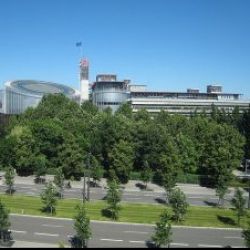Abu Zubaydah, a Palestinian born in Saudi Arabia, was accused by the US authorities of conspiring to organise September 11th attacks and closely collaborating with Osama bin Laden. On 28 March 2002, the man was abducted from his home in Faisalabad, Pakistan. From that time Mr Zubaydah’s fate remained unknown until the official US confirmation of him being detained in the Guantanamo base, Cuba. Attorneys for Abu Zubaydah claim in the application that he had been detained in a CIA black site in Thailand and later, on 5 December 2002, was flown to the secret detention facility allegedly located in Stare Kiejkuty, Poland.
On 22 September 2003 Abu Zubaydah was transported to further CIA sites, most probably in Cuba, Lithuania, Morocco and Afghanistan. Later he was reportedly moved back to the Guantanamo prison camp where he has been detained without any formal charges to this day.
“Abu Zubaydah is one of the high-value detainees. He was subjected to “enhanced interrogation techniques” including, among other things, waterboarding, used on Abu Zubaydah on as many as 83 occasions in a single month, according to US administration records”, says Irmina Pacho, HFHR lawyer. In his application Mr Zubaydah alleges violations of Articles 3, 5, 6, 8 and 13 of the European Convention on Human Rights.
“The applicant’s submissions concern violations of basic human rights, above all his solitary detention without an order of a court, the use of torture against his person, and his extradition to a third country despite the risk of him being further exposed to torture”, notes Dr. Adam Bodnar, HFHR Deputy President.
Abu Zubaydah follows the footsteps of another Guantanamo prisoner, Abd al-Rahim al-Nashiri, who alleges that the Polish prosecution service failed to effectively investigate his case.
“The significance of the case has been further emphasised by the involvement of Józef Pinior, who presented a special statement for the proceedings before the ECtHR, confirming the obtaining of many accounts of the existence of a secret CIA facility in Stare Kiejkuty”, adds Dr. Bodnar.





